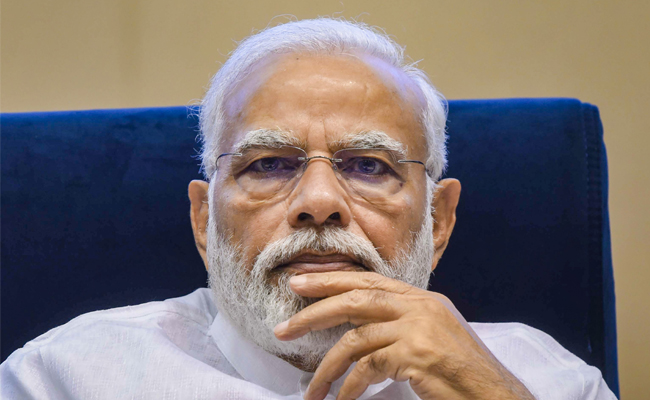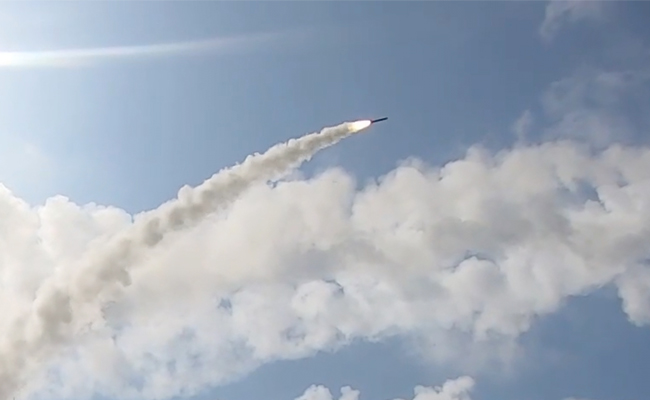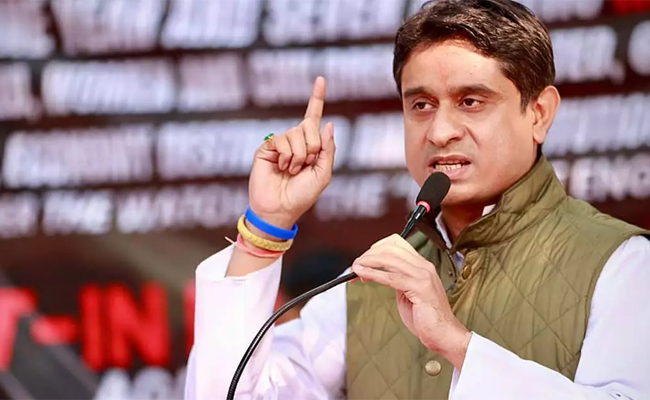Kolkata: Bangladesh captain Mominul Haque won the toss and elected to bat against India in their maiden Day/Night Test here on Friday.
The Virat Kohli-led India have not made any change to the side that won the opening Test in Indore. Bangladesh made two changes to their line-up with Al-Amin Hossain and Naeem Hasan coming in to replace Taijul Islam, Mehidy Hasan.
The two teams are playing with the pink ball for the first time and fans have responded enthusiastically. The first four days of the game are sold out.
A silver coin, brought out specially for the game, was used for toss.
Bangladesh Prime Minister Sheikh Hasina along with Bangladesh Cricket Board Chairman Nazmul Hasan and some of India's biggest cricket icons such as Sunil Gavaskar and Sachin Tendulkar are in attendance at the historic match.
"We want people coming back to the game," said BCCI President Sourav Ganguly, who made the match possible by convincing the Bangladesh Cricket Board to agree.
This is just the 12th Day/Night game.
Also present at the Eden Gardens on Friday are a host of Indian sporting stars such as Olympic gold-medallist shooter Abhinav Bindra, six-time world champion boxer M C Mary Kom, and Grand Slam-winning tennis star Sania Mirza.
The Teams:
India: Mayank Agarwal, Rohit Sharma, Cheteshwar Pujara, Virat Kohli(c), Ajinkya Rahane, Ravindra Jadeja, Wriddhiman Saha(w), Umesh Yadav, Ravichandran Ashwin, Mohammed Shami, Ishant Sharma
Bangladesh: Shadman Islam, Imrul Kayes, Mominul Haque(c), Mohammad Mithun, Mushfiqur Rahim, Mahmudullah, Liton Das(w), Nayeem Hasan, Abu Jayed, Al-Amin Hossain, Ebadat Hossain.
Let the Truth be known. If you read VB and like VB, please be a VB Supporter and Help us deliver the Truth to one and all.
New Delhi (PTI): As the conflict in West Asia widened, India on Tuesday emphasised the interest of one crore Indian nationals in the region and voiced concern over consequences for the Indian economy due to possible disruptions in energy supplies, even as Prime Minister Narendra Modi discussed the evolving situation with leaders of Oman, Kuwait and Qatar.
In its second statement since the US-Israel strikes on Iran and Tehran's subsequent retaliation, India once again called for "dialogue and diplomacy" to end the conflict, noting that New Delhi has critical stakes in the security and stability of West Asia and the current developments "evoke great anxiety".
New Delhi said it will continue to closely monitor the evolving situation and take relevant decisions in the national interest, adding it is in touch with the governments in the region as well as other key partners.
"In recent days, we have not only witnessed an intensification of the conflict but also its spread to other nations. The destruction and deaths have mounted, even as normal life and economic activities come to a halt," the Ministry of External Affairs (MEA) said.
"As a proximate neighbour with critical stakes in the security and stability of the region, these developments evoke great anxiety."
The ministry said almost one crore Indian citizens are living in West Asia, and their safety and well-being are of "utmost priority" for New Delhi. "We cannot be impervious to any development that negatively affects them," it said.
The conflict in West Asia intensified with Iran continuing to pound several Gulf countries in retaliation for the joint attack against it by Israel and the US. The US and Israel have also carried out fresh strikes on Iran.
As part of its offensive, Iran has blocked the strategically located Strait of Hormuz shipping route, triggering a surge in global oil prices.
"Our trade and energy supply chains also traverse this geography. Any major disruption has serious consequences for the Indian economy," the ministry said.
The Strait of Hormuz handles nearly 20 per cent of the world's total oil and gas supplies. About 50 per cent of India's oil imports, or roughly 2.6 million barrels a day, pass through the Strait.
Iran has carried out a wave of attacks mainly targeting Israel and American military bases in several Gulf countries, including the UAE, Bahrain, Kuwait, Jordan and Saudi Arabia.
The Iranian retaliation increased after Tehran announced early Sunday that its Supreme Leader Ayatollah Ali Khamenei had been killed in the Israel-US strike.
"As a country whose nationals are prominent in the global workforce, India is also firmly opposed to attacks on merchant shipping. Already, some Indian nationals have lost their lives or are missing as a result of such attacks in the last few days," it said.
"In this background, India strongly reiterates its call for dialogue and diplomacy. We raise our voice clearly in favour of an early end to the conflict. Already, many lives have been regrettably lost, and we express our grief in that regard," it added.
It is learnt that at least three Indian nationals were killed in Iranian attacks on two merchant vessels in the waters off Oman.
The statement by the MEA, however, was silent on the killing of Ayatollah Khamenei.
The ministry said Indian embassies and consulates in the affected countries remain in close touch with Indian nationals and community organisations, issuing regular advisories.
"They have also extended all possible help to those stranded by the conflict. The embassies and consulates will continue to be proactive in addressing various consular aspects of this conflict," it said.
"We are in touch with the governments of this region as well as other key partners. The prime minister and external affairs minister have held discussions with their counterparts," it added.
Following his phone conversation with the Emir of Qatar, Sheikh Tamim bin Hamad Al Thani, PM Modi said India stands "firmly" in solidarity with the Gulf nation and strongly condemns any violation of its "sovereignty and territorial integrity".
"We emphasised the urgent need to restore peace and stability in the region through dialogue and diplomacy. I also conveyed my appreciation for his continued support and care for the Indian community in Qatar during this challenging time," he said.
The prime minister described his phone conversation with the Crown Prince of Kuwait, Sheikh Sabah Al-Khaled Al-Hamad Al-Mubarak Al-Sabah, as "productive" and conveyed to him that India condemns the violation of Kuwait's sovereignty and territorial integrity.
"We underscored the significance of dialogue and diplomacy in restoring regional peace and stability. Appreciated the Kuwaiti leadership's continued support to ensure the safety and well-being of the Indian community in Kuwait," Modi said on social media.
In his phone conversation with Oman Sultan Haitham bin Tariq, Modi "deeply appreciated" Oman's continued support for the Indian community.
"Condemned the violation of Oman's sovereignty and territorial integrity.
We agreed that sustained diplomatic engagement is essential for the earliest restoration of regional peace and stability," the prime minister said.
India issued the first statement on February 28, hours after the US and Israel launched the military offensives against Iran.
"We had expressed our deep concern at the cankar spoke to the European Union's High Representative for Foreign Affairs and Security Policy Kaja Kallas and discussed the situation in West Asia. Our discussions focused on the ongoing conflict in Iran and the Gulf," Jaishankar said on X.
The US military has said six of its personnel were killed in the conflict so far. The US-Israeli strikes have killed at least 787 people, the Iranian Red Crescent Society said. According to reports, at least 11 people were killed in Israel.
In a related development, the Indian embassy in Iran has relocated most Indian students from Tehran.
"Due to the heightened risk perception in Tehran city, the Embassy of India has relocated most Indian students who were in Tehran," the Indian mission said.
The students were taken to locations outside of Tehran. The embassy arranged transportation, food and accommodation for the students.





